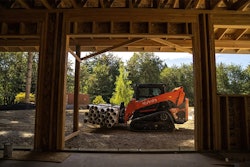
The findings were jarring. More than half the evaluations used in the study demonstrated that experienced doctors actually showed a decline in effectiveness in all researched areas the longer they remained in the medical profession.
In their book Peak: Secrets from the New Science of Expertise, authors Anders Ericsson and Robert Poole corroborate the Harvard research with a wealth of examples of the decline in skill and aptitude of people who felt they had reached mastery in their respective areas of interest and expertise.
Throughout their years of examining this phenomenon, Ericsson and Poole encountered people in a multitude of professions and industries who had fallen victim to a decline in skill, owing largely to two easily reversible factors: confidence and complacency.
Few would argue that confidence is a bad thing when it serves as the catalyst for moving out of our comfort zones and pursuing mastery in a skill. The record books are full of ordinary people who have been able to accomplish extraordinary feats owing largely to the mere confidence that they could.
But when confidence begins to stifle the human instinct to grow and evolve, it does more to harm us than to help us. In fact, it becomes false confidence – and eventually complacency – as we settle more and more into our daily routines.
Practice is the necessary ingredient in the recipe for true growth, yet as the research has overwhelmingly shown, when we believe we have reached the pinnacle of our performance and that there is no farther for us to climb, it is often the first ingredient we abandon.
Practice is the continual hand on our backs preventing the backslide and the undoing of years of dedication and diligence that got us to the top in the first place. And this practice is just as important in business as it is on the playing field, in the courtroom or classroom, or on the operating table.
What does practice mean in business, and how does it help to keep us from getting too comfortable?
It raises the bar
History shows that the geniuses of yesterday are, in many cases, today’s status quo. In fact, certain pieces of music that were considered masterpieces a few centuries ago are now scorned by critics who consider them elementary.
This is likely because the human brain continues to evolve and take on more complex processes and abilities with greater ease, which highlights the importance of continually challenging it if any genuine growth is to occur.
When a task becomes too easy, this is the brain’s way of signaling it needs something more substantial to latch onto and digest. Regularly challenging yourself and your teams to set higher expectations, and consistently meeting and exceeding those expectations through diligent practice, ensures your business always stands at the forefront of the industry, setting the standard and paving the way for others.
It bridges the gap
Imagine you are standing on one side of a valley, and one of your top-line goals for your business is standing at the other side.
There is only one way to cross the valley, a bridge no wider than a tightrope. How will you reach your goal? Relying on confidence alone, especially if you have never walked a tightrope, won’t get you very far.
In fact, it may end badly. Practicing tightrope walking over an extended period of time, however, and being disciplined about including this practice in your daily routine, increases your chances of safely reaching your goal.
Viewing the tightrope as a means to reach your goal rather than an obstacle to prevent you from it will make all the difference in your success. And when the next goal stands on the other side of an even wider, more daunting valley, you will be ready to do the necessary work to reach it, because you know it’s possible with practice.
It charts the path
The human brain contains nerve cells that transmit signals to different parts of the body, and even different parts of the brain. These nerve cells travel along what scientists call the neural pathway.
Much like us when we take the same route to work every morning, the signals in our brains tend to travel the same path unless they are interrupted. Each time we learn a new skill, a new neural pathway is carved in our brains.
When you commit to practicing a new skill or becoming better at an existing one, the atlas of neural pathways in your brain becomes increasingly more complex to keep up. Because your brain holds onto every experience, it will draw from lessons learned previous practice to help you meet new challenges.
When you embrace these challenges as opportunities to grow and learn, you and your business will always be ready for any obstacles that threaten its growth and vitality.
Comfort is good for some things, like lounging on the beach or spending a rainy Saturday watching the big game. In your business, however, comfort can be dangerous, stifling the innovation, creativity, and dedication vital to keeping your business thriving.
Committing to regular practice in the skills, processes, and endeavors that matter most to the successful operation of your business over the long term is one of the most powerful ways you can ensure it consistently remains at the forefront of an increasingly competitive market.
EDITOR’S NOTE: This article was written by Mike Eisenhuth, a former Success Coach with LandOpt, a business that works with independently-owned landscape contractors across the U.S., helping them increase profitability, cash flow and revenue. To learn more, visit www.landopt.com.











